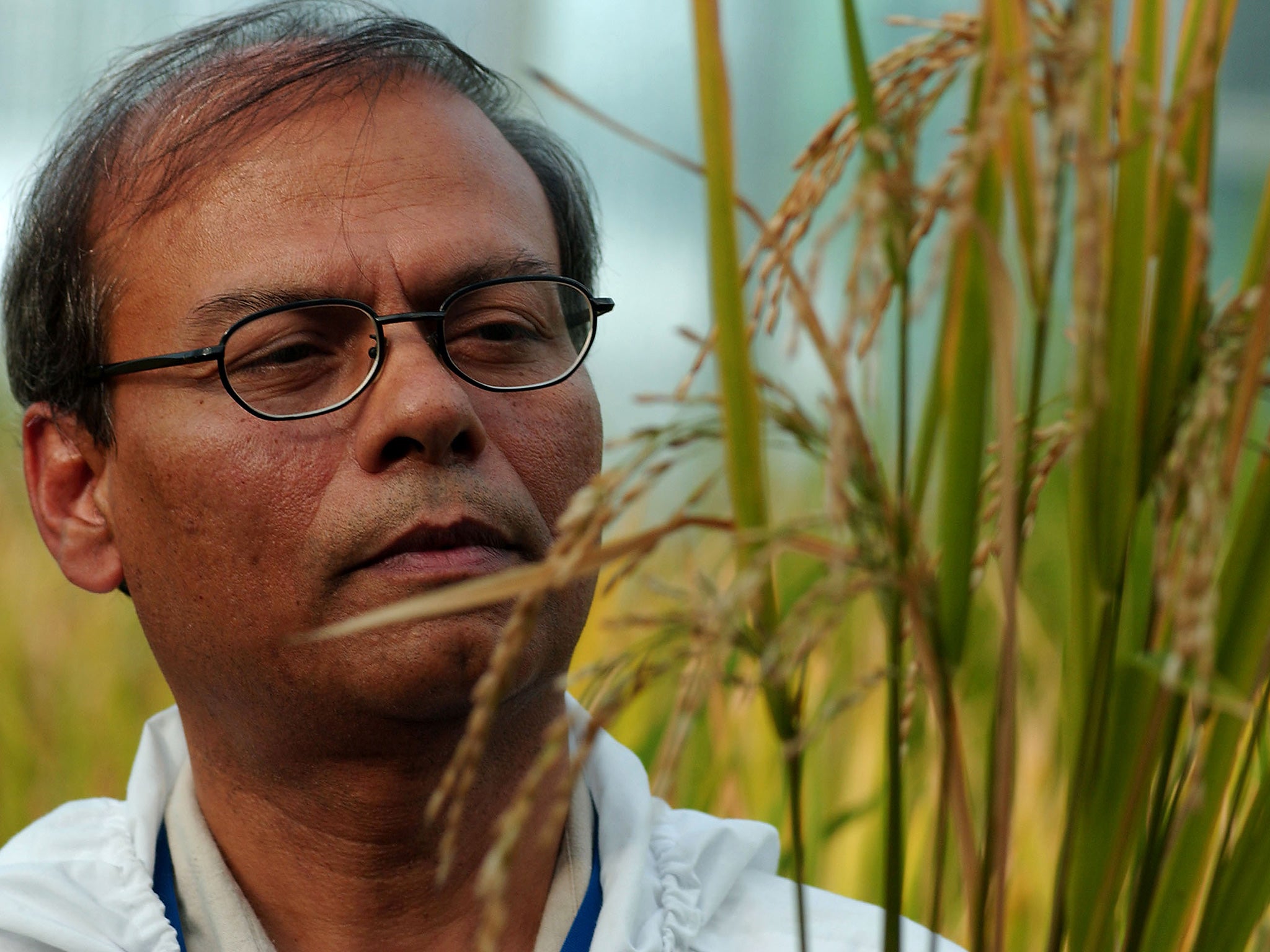Scientists behind 'golden rice' GM crop to receive humanitarian award from the White House
The rice could become a staple food that saves millions of lives

The scientists who invented vitamin-enriched “golden rice” will receive a humanitarian award tomorrow from the White House in Washington for developing a staple food that could save the lives of millions of people in the developing world.
Golden rice is genetically manipulated to turn on the genes for making beta-carotene, a nutritional precursor the body needs to manufacture its own vitamin A. These genes are switched off in ordinary white rice which can lead to severe vitamin A deficiency causing tens of millions of cases of blindness and death each year, mainly in South East Asia.
Environmental campaigners opposed to golden rice have organised the destruction of experimental field trials on the grounds that the GM rice represents a high-tech “quick fix” to vitamin A deficiency without addressing the underlying problems of poverty and poor nutrition.
“Genetically engineered ‘golden’ rice is environmentally irresponsible, poses risk to human health and could compromise food, nutrition and financial security,” said Greenpeace, which has led the opposition to the crop for the past two decades.
However, the White House Office of Science and Technology Policy and the US Patent and Trademark Office have awarded the inventors of golden rice the prestigious Patents for Humanity Award, which will be presented to Adrian Dubock, who as a former scientist at the agro-chemicals company Syngenta helped to arrange for the intellectual property behind the research to be made available free of charge to developing countries.
Dr Dubock, who will accept the award in Washington, shares the prize with its two co-inventors, Professor Ingo Potrykus of the Swiss Federal Institute of Technology in Zurich and Peter Beyer of the University of Freiburg in Germany, who granted Syngenta the rights to develop the technology. The company announced in 2004 that it had no continuing interest in the commercial exploitation of golden rice but would continue to support its development as a humanitarian project.
Vitamin A deficiency is a leading killer of children globally, accounting for between 2m and 3m deaths per year, as well as causing about 500,000 cases of blindness annually. White rice is the main daily staple crop for about 3.5bn people in the world, even though it is deficient in vitamin A, which is typically found in meat and leafy vegetables.
Supporters of golden rice said that it could have been introduced a decade ago but opposition by environmentalists has held up its regulatory approval, leading to the preventable death and blindness of tens of millions of people.
Subscribe to Independent Premium to bookmark this article
Want to bookmark your favourite articles and stories to read or reference later? Start your Independent Premium subscription today.

Join our commenting forum
Join thought-provoking conversations, follow other Independent readers and see their replies